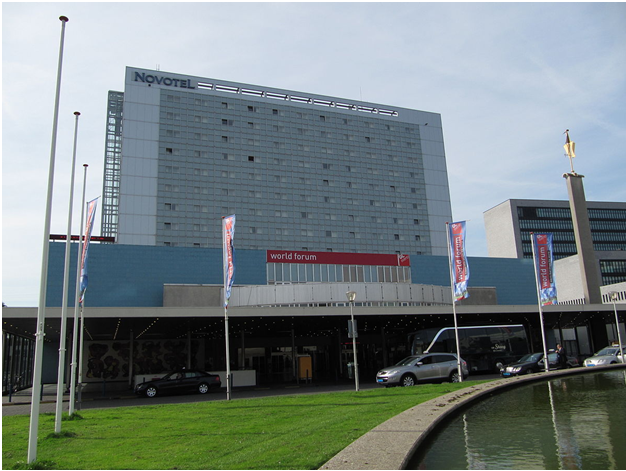Nuclear Weapons 69 - Recent International Meeting on Disarmament at the Hague
Earlier this week, leaders from nuclear nations met for the Nuclear Security Summit at the World Forum in the Hague, Netherlands to discuss ways to reduce the global threat of nuclear terrorism. Three such meetings have been held since 2010 organized by the United States. At the first meeting in 2010, a deadline of 2013 was set "to secure all vulnerable nuclear material around the world within four years." Although this has not been completely accomplished, since 2010 ten countries have gotten rid of their stockpiles of plutonium and highly enriched uranium including Chile, Serbia, Turkey, Austria, Mexico, Sweden, Ukraine, the Czech Republic, Hungary and Vietnam. It was announced at this week's meeting that a new deadline of 2016 would be set to secure vulnerable nuclear materials.
The Nuclear Threat Initiative think-tank in Washington, D.C. published a report before the meeting that said almost two thousand metric tons of nuclear material that could be used to create nuclear weapons still exists around the world. Some of this nuclear material has very poor secured according to the report.
This week's meeting will be dedicated "to improving security for global stocks of other radiological isotopes including cobalt 60 and caesium 137 which are used in industry, research and medicine but which could be used in a "dirty bomb" to irradiate a large urban area." The International Atomic Energy Agency reported last year that, on average, there may be as many as one hundred thefts of small amounts nuclear materials every year. The small quantities stolen to date do not pose a serious threat.
At this week's meeting, Japan pledged to ship six hundred sixty pounds of weapons-grade plutonium and four hundred forty pounds of highly enriched uranium to the United States. The U.S. had requested that Japan ship their weapons-grade radioactive materials to the U.S. for disposal. China has been complaining lately that it feared the Japanese were going to use the materials to create nuclear weapons. Belgium and Italy have also signed agreements with the U.S. to remove their stockpiles of surplus fissile materials that might be a threat if they fall into the wrong hands.
The Ploughshares Fund is an organization dedicated to nuclear disarmament and nuclear non-proliferation. The head of the Fund applauds the cooperative framework established by the series of meetings but says that much remains to be done. He points out that the current efforts are not sufficiently urgent to match the threat. There are terrorist groups in the world who are actively seeking nuclear materials to create weapons. The big question is whether or not all nuclear materials will be secured before terrorists managed to get their hands of sufficient nuclear materials to construct a weapon. The Ploughshare Fund sees the securing of nuclear materials as a race against time.
I applaud the work of the Ploughshare Fund and the meetings that are being held but I am afraid that they may not be enough. Russia is working on breeder reactors to generate plutonium which they intend to use for nuclear fuel domestically and for export. This will significantly increase the amount of weapons-grade material that will have to be protected in storage and during transportation. In addition, reactors are being built in third world countries that have corrupt governments which are unlikely to properly regulate and secure nuclear materials. Greater global efforts to increase nuclear security will be necessary to protect our civilization.
World Forum in the Hague, Netherlands:
